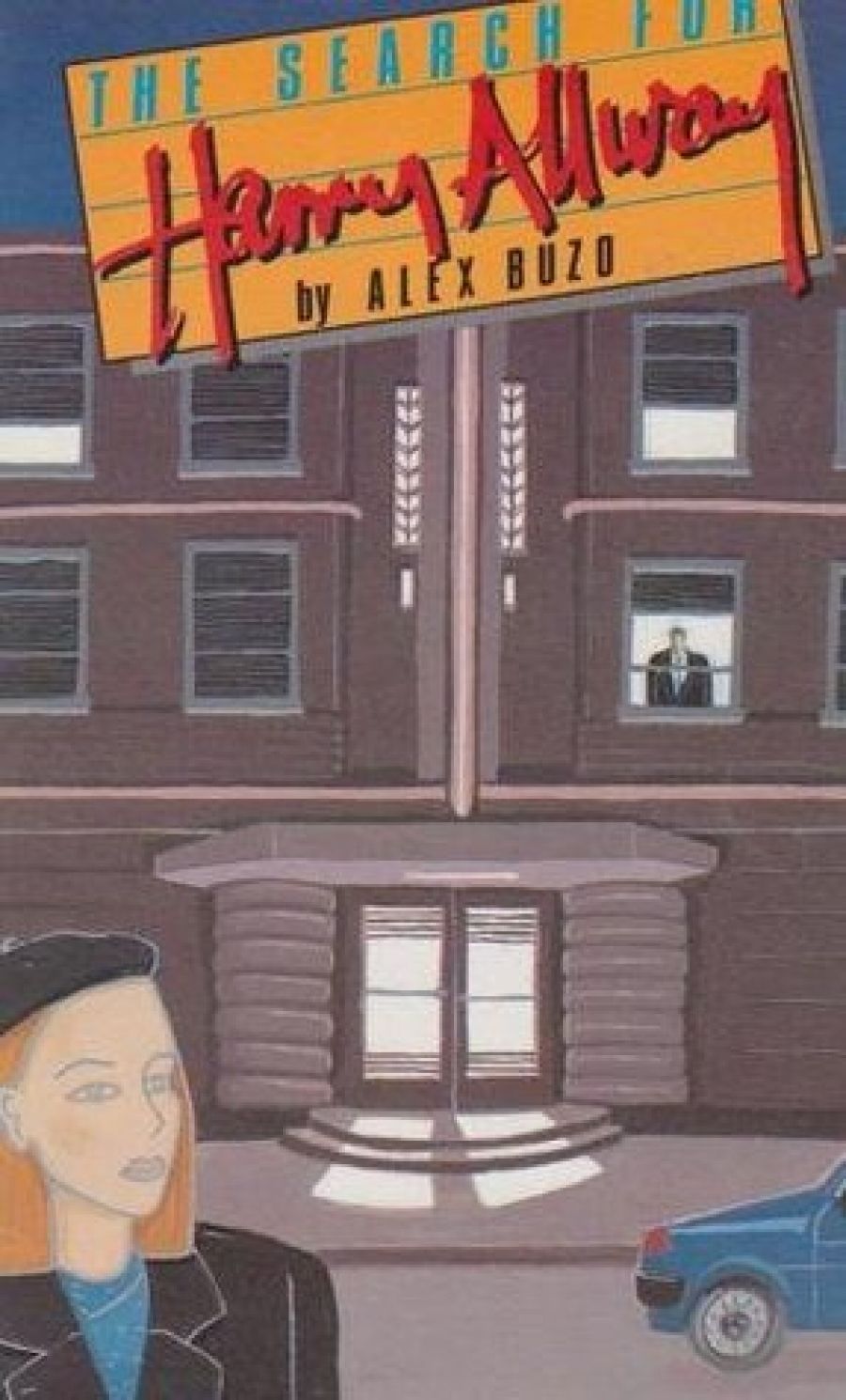
- Free Article: No
- Contents Category: Fiction
- Review Article: Yes
- Online Only: No
- Custom Highlight Text:
This is a first novel from Alexander Buzo, the playwright of the 1960s and 1970s who gave vitriol a new status in the Australian vernacular and who, through characters like Coralie Landsdowne (Coralie Landsdowne Says No) and Edward Martello (Martello Towers), raised pretentious speech to new levels of social acceptability. In a published comment on audience reception to Martello Towers, Buzo describes Edward Martello as ‘an educated ‘rake’, who is, in keeping with the style of the play, articulate beyond the grounds of naturalism’ and concludes, ‘Still, as long as they’re enjoying themselves’. Defensive disclaimers from writers hint at a nervousness which must, eventually, find its way into the writing usually in the form of overkill. The worst recent example of this is the introduction to Clive James’s Brilliant Creatures in which a rather affected statement of pre-emptive failure is intended to head the critics off at the pass if they were to do anything as unkind as suggest that the work was any more frivolous than intended by its author, who, of course, intended it to be.
- Book 1 Title: The Search for Harry Allway
- Book 1 Biblio: Angus and Robertson, 185 pp, $9.95 pb
The delineation of stereotypes is a well-known characteristic of the plays but is far more superficial in, its fictional form, relying on description alone rather than a consistent style of dialogue balanced against the dialogue of other characters. The capitalisation of the ‘types’ – The Gutsy Lady with the Big Whinge (about Harry Allway), The Sixties Script writer, The Single Canberra Woman, The Passionate European Woman and other Awful Types – draws the reader into an easy camaraderie with the author. We can silently boo or cheer the entrance and exits of these madcap offsiders who cross the path of the unstoppable Prue as she cuts her way through hypocrisy, deceit and general moral laxity in the search for the whereabouts and identity of the mysterious pools winner, Harry Allway. The best Type – not part of the action – is Karen. She is the reluctant, uninterested ‘helper’ (shop assistant, receptionist) we’ve all met before, whose verbal and non-verbal mannerisms announce entrenched sloth, giving rise to either a shoulders-shrug or monosyllabic fob-offs like ‘Air’, ‘Nub’ or ‘Dunno’.
However, it’s one thing to invent characters who can be recognised as stereotypes and then give them a part in a play: it’s another thing to filter cynical humour through the observations of one fictional character and it is here that the search for Alex Buzo begins. Parody and satire have a boomerang quality: one false note and the joke is on the rebound leaving unpleasant doubts about source and intent in the minds of the listeners.
Prue Foster doesn’t have to be convincing – she’s the silly heroine of a deliberately silly story. Her intractability and mistrust of everyone and everything, especially in matters sexual, is easy to lampoon. There are times, though, when the observations attributed to Prue contain more than her usual Touch of Asperity (a Buzoism for her hard-hitting reporter’s style), a deeper and more serious spite which fractures an otherwise credible comic portrait.
When Prue interviews The Single Canberra Woman (‘she wasn’t interested in news or current’ affairs, ate wholemeal wattle bread, and thought the woman’s movement was doing a great job in these months leading up to the Nuclear Holocaust’) Buzo writes ‘Feminism, Prue had come to realise, was essentially a class conflict between women, between those who could cross their legs properly and those who couldn’t. Men were pawns in this game, and a game it was, with much switching of sides to gain advantage’. The Gutsy Author with the Big Whinge? Maybe.
Serious social comment is subliminal in most comedy, no matter how frivolous. It is not hidden, however, and occasionally breaks through in disguise. No doubt that is precisely in keeping with the style of the novel. Check. End of argument. Except that if the novel is a thinly disguised excuse for peddling unused after-dinner jokes and unacceptably snide asides on aspects of modern life then all the laughter which is there for the offing in The Search For Harry Allway will not deaden the critical nerves to the point where certain false-sounding and unfunny sentiments do not register amid all that comic mayhem.


Comments powered by CComment